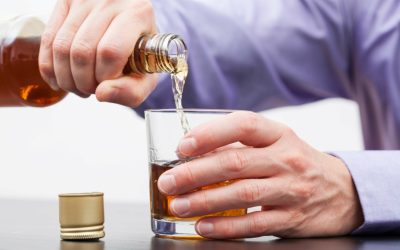Content
The criteria include having a pattern of consumption that leads to considerable impairment or distress. Alcohol consumption becomes a problem when it takes precedence over all other activities. Alcohol use that turns into a use disorder develops in stages. One of the biggest causes of relapse is stress, and your loved one may need to add stress-relieving activities to their routine to overcome alcohol cravings. Encourage your loved one to try activities like journaling, yoga, meditation, and regular exercise to relieve stress. Fortunately, you can still be supportive without becoming a counselor or coach.
Alcoholism is a term used to describe someone with an alcohol use disorder. Someone with alcoholism has both a physical and psychological dependence on alcohol. They may have problems controlling their drinking habits or choose to keep drinking even though it causes problems. These problems may interfere with their professional and social relationships or even their own health.
Do Know When to Take a Step Back
If you believe your loved one is suffering from alcohol addiction, you can take steps to help them seek treatment. Has been helping alcoholics recover for more than 80 years. A.A.’s program of recovery is built on the simple foundation of one alcoholic sharing with another.

This is not an uncommon concern, but the short answer is “no.” All medications approved for treating alcohol dependence are non-addictive. These medicines are designed to help manage a chronic disease, just as someone might take drugs to keep their asthma or diabetes in check. When asked how alcohol problems are treated, people commonly think of 12-step programs or 28-day inpatient rehab but may have difficulty naming other options. In fact, there are a variety of treatment methods currently available, thanks to significant advances in the field over the past 60 years.
Women and Alcohol
These symptoms can occur in as little as two hours to four days after stopping alcohol use. If you notice your loved one going through withdrawal, they may have AUD. Realize that you can’t force someone who doesn’t want to go into treatment.

Many people find that a combination of treatments works best, and you can get them together through a program. Some of these are inpatient or residential programs, where you stay at a treatment center for a while. Others are outpatient programs, where you live at home and go to the center for treatment. An important first step is to learn more about alcohol use disorder and your treatment options.
Related Institutes & Services
Before talking with them, it may be helpful to speak with a healthcare provider who specializes in addiction to obtain guidance on how to get help for alcoholism. Once you’ve done that, choose a time to sit down with them when they are sober so they can better process what you are saying. After the detoxification stage, you will begin rehabilitation. This involves a wide range of different therapies and treatments to help you combat drinking urges and triggers. During this stage, you will also learn coping skills that can be applied to everyday situations after leaving rehab. The rehabilitation stage may take place in an inpatient or outpatient setting, depending on the severity of your alcoholism and what your doctor recommends.
How do you deal with someone who is always drunk?
Be confident yet non-threatening with them and show genuine concern for their well-being. Find their sober friends; they will respond to them and they are often able to calm them down, rather than someone they do not know.
Choosing a course of treatment has become more complicated, but the results of a careful search are likely to be more successful and more satisfying to the individual. Residential treatment programs typically include licensed alcohol and drug counselors, social workers, nurses, doctors, and others with expertise and experience in treating alcohol use disorder. Depending on the severity of the AUD, individuals can enter into a number of alcohol rehabilitation programs including inpatient and outpatient addiction treatment settings. Before starting the treatment process, a person must first recognize their condition and have a desire to quit drinking.
Staying Social When You Quit Drinking
After a rehabilitation program has been successfully completed, aftercare is an important part of the recovery process. Treatment typically involves a mix of private and group counseling sessions, behavioral therapies, medications, and support groups. This is available from a range of support groups and professional sober house services. Other tests can indicate whether there is damage to the liver, or — in males — reduced testosterone levels. If a blood test reveals that the red blood cells have increased in size, it could be an indication of long-term alcohol misuse. Some risk factors may also be linked to excessive drinking.
- Others may want one-on-one therapy for a longer time to deal with issues like anxiety or depression.
- “Long-term drug treatment of patients wit[…] alcohol dependence.” Australian Prescriber, April 1, 2015.
- Depression and anxiety often go hand in hand with heavy drinking.
- Medicines are usually used with talk therapy and support groups to treat alcohol use disorder.
- In most cases, it would be appropriate for the employee to be carried on any available sick leave.

